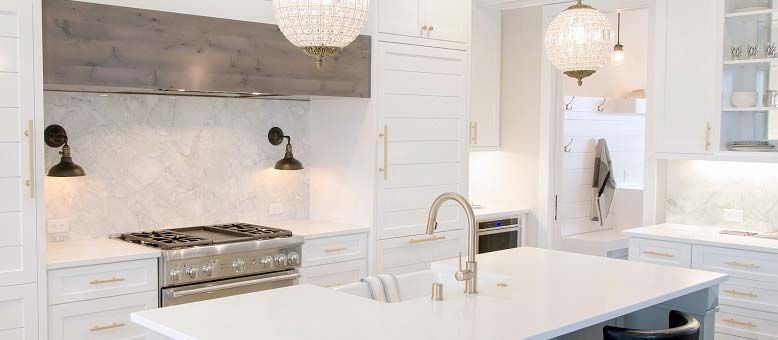Best DIY home projects to increase the value of your home
Learn which DIY home projects offer the best return on your investment and which updates don’t offer great value, so you can make the smartest decision for your situation.
Are you considering investing your time and money into some home improvements this year? Whether you’re interested in increasing the long-term value and comfort of your home or if you’re planning an update to increase the value of your home because you’re planning to sell it soon, it can be difficult to know how which updates to make when you’re on a budget.
And if you’re watching your wallet, this is especially true if you’re eager to get the most value from your renovation money and efforts.
Learn which DIY home projects offer the best value or return on your investment and which updates don’t offer a great return so you can make the wisest decision for your situation.
Why are you renovating?
Before investing in an expensive home renovation, consider your reason for the upgrade. Some homeowners take on DIY home renovation projects for their own enjoyment, or simply because they’re necessary for their families to live comfortably and safely in the home. In this case, the return on value might not be as important, especially if you don’t plan to move for several years. In time, rising property values could have more of an impact on your home value than your home renovation project.
If you’re getting help with your home remodelling, ask your contractor questions and get advice on which renovations help improve value in your region.
For more information on boosting your home value with DIY home projects, read the Appraisal Institute of Canada’s How to Value Your Renovations digital brochure.
Best value updates to make throughout
If you’re thinking that a large remodel will give you the best bang for your buck, you could be in for a surprise. Pauline Aunger, former president of the Canadian Real Estate Association, told Global News the best value updates to make throughout a home are often much smaller projects. She suggests making simple fixes, such as:
- Swapping old kitchen and bath hardware for new
- Installing new light fixtures
- Removing outdated décor (i.e. wallpaper)
The best value kitchen and bathroom updates aren’t necessarily the most expensive. And this is good news if you want to update your home without going into debt.
However, according to Remodelling Magazine’s 2020 annual report, some of the best value updates to make throughout your home actually occur outside your house. Take note though, if you’re looking at the upgrade from a purely financial perspective you might feel disappointed on your investment - in the short-term.
For example, sprucing up the outside appearance of your home with manufactured stone veneer means that if you sell your home soon, you could recoup up to 97% of what you spent on the stone. While you are “out” 3% of your investment, you do get to enjoy the improved appearance of your home until you sell it.
According to the report, other DIY home projects that offer a relatively good value for investment include installing a new garage door, which can get a 94.5% return on investment, and a “mid-level” kitchen renovation, where you replace the cabinet doors and hardware but leave the cabinets, refresh the sink and faucet, and remove laminate counters, typically delivers a 78% return. Changing the sink and counters may not be DIY projects, but changing the cabinet doors is a simple update that most people could handle in a rainy afternoon.
Updates to avoid
Sometimes home renovations happen during difficult times, such as when you’re selling your home to reduce your mortgage stress. In this case, consider each home renovation idea in your budget carefully. It’s important to minimize the chances of spending too much on updates that not only won’t pay off, but could actually lower a potential buyer’s offer! Here are some updates to keep away from.
Trendy paint and paper
Avoid trendy bright colours or wallpaper patterns on walls. Bright paints can be difficult and expensive to paint over, and can also be a shock to the potential buyer if it doesn’t suit their taste. If you’re planning to sell in the near future, stick to lighter, neutral colours that make your home feel bright and open.
Fashionable flooring
You should also consider skipping the expensive flooring options such as unique carpeting, tile, or laminate floors. These current favourites might have short-term appeal, but if you plan to sell your home later a potential buyer could see orange shag carpeting as an expensive fix, which could negatively impact your home’s perceived value. Stick to quality, basic flooring – there are plenty of options for affordable carpets and cheap engineered wood that look great without breaking the bank.
Costly upgrades with expensive maintenance
If you’re trying to renovate your home on a budget and plan to sell it within a couple of years, you might want to avoid adding costly upgrades that are expensive to maintain.
While you might love the idea of an in-ground swimming pool, hot tub, or sauna, a prospective buyer might see it as a negative because of the cost of maintaining it.
Other factors impacting your home’s value
No matter how much you invest in renovating your home, there are other factors that come into play with your home’s values. The economy, the demand for your home’s layout or size, as well as the location of your home each play a role in your home’s value.
An interesting point from the Remodelling Magazine report shows the strong role that location plays in how much of a return you could get on updating your home.
If you’re trying to renovate your home on a budget in order to sell it quickly, consider talking to a local-area realtor before you start spending. They should be able to tell you what buyers look for in homes in your area. The more you know about the features found in highly desirable homes in your neighbourhood, the easier it will be to choose the right budget DIY home projects to boost your home value.


